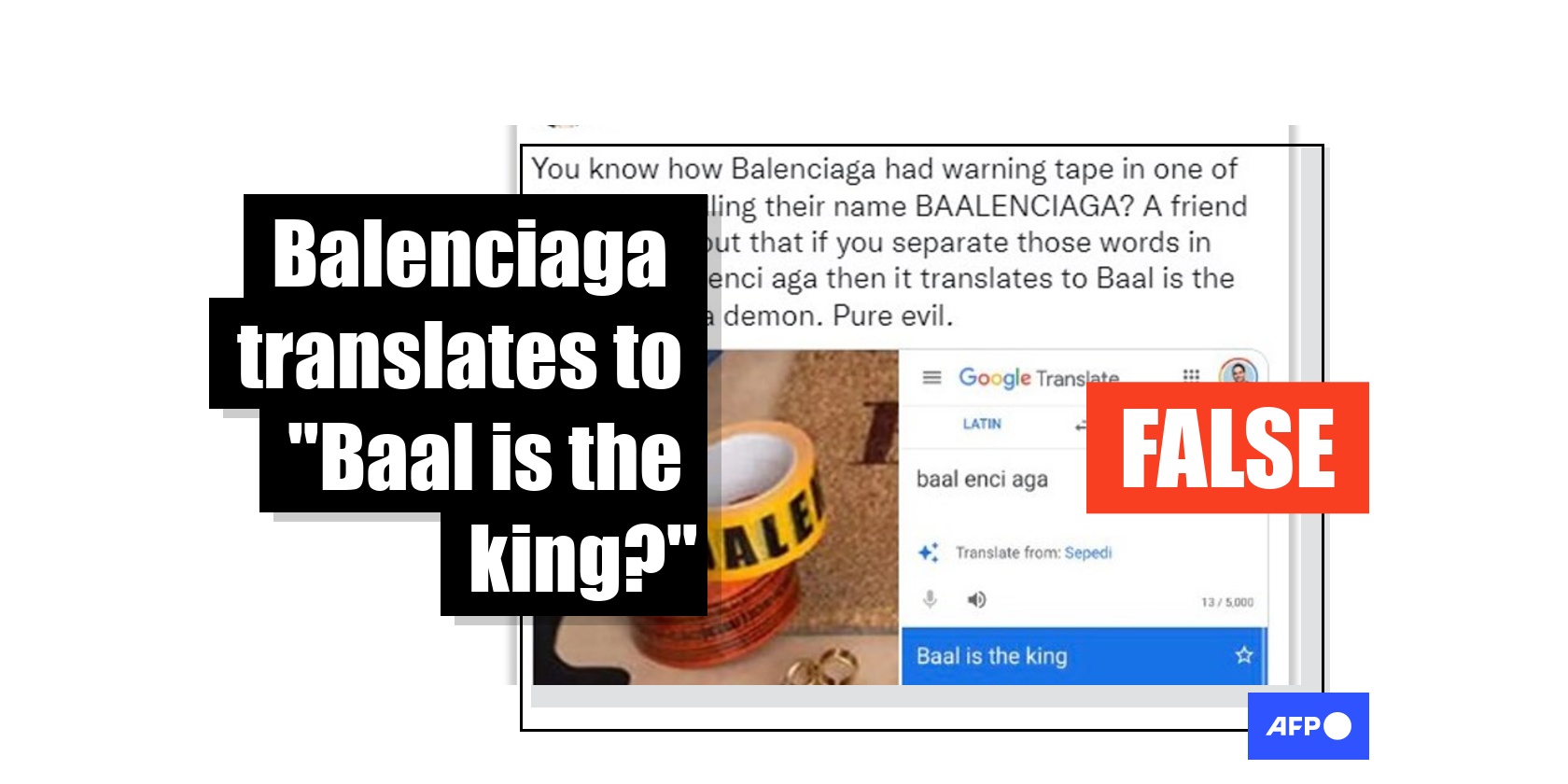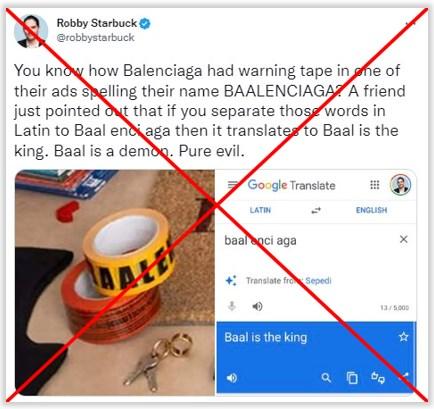
Posts stoke demonic Balenciaga conspiracy theory
- This article is more than three years old.
- Published on December 5, 2022 at 19:10
- 2 min read
- By Natalie WADE, AFP USA
"You know how Balenciaga has warning tape in one of their ads spelling their name BAALENCIAGA? A friend just pointed out that if you separate those words in Latin to Baal enci aga then it translates to Baal is the king," says a November 30, 2022 tweet from Robby Starbuck, a Republican who unsuccessfully ran to represent Tennessee in the US House of Representatives during the 2022 midterm elections.
He added: "Baal is a demon. Pure evil."

Screenshots of the supposed Google translation spread to other social media platforms, including Instagram and TikTok.
The conspiracy theory circulated online as controversy enveloped Balenciaga, a French brand owned by the Kering group, over a pair of recent ad campaigns. One featured children carrying teddy bears dressed in what some described as bondage gear, while the other showed printed documents from a US Supreme Court ruling related to child pornography.
Critics accused Balenciaga of condoning sexually exploitative images of children, and the fashion house -- named after founder Cristóbal Balenciaga -- later removed the ads from its website and issued an apology. The brand also filed a $25 million lawsuit against several companies and individuals involved in the campaign's production.
The caution tape pictured in the posts comes from one of Balenciaga's campaign photos. But claims that the brand -- when spelled "Baalenciaga" and separated phonetically to "Baal-enci-aga" -- translates to "Baal is the king" in Latin are incorrect.
Baal is one of the seven princes of Hell in Jewish and Christian demonology. Social media users claim the incorrect spelling of "Baalenciaga" on the yellow tape shown in the posts is a reference to demonic imagery.
However, the name "cannot be wrenched into Latin," according to Jan Ziolkowski, a professor of medieval Latin at Harvard University.
Ziolkowski told AFP the correct translation of "Baal is king" is "Baal est rex." Neither "enci" nor "aga" appear in Latin dictionaries.
When AFP translated the phrase using Google, the platform yielded a slightly different result than the one pictured in the social media posts. It also prompted an alternate translation from Sepedi, an official language of South Africa.
AFP reached out to Balenciaga for comment, but a response was not forthcoming.
AFP has fact-checked other misinformation about the Balenciaga controversy here.
Copyright © AFP 2017-2026. Any commercial use of this content requires a subscription. Click here to find out more.
Is there content that you would like AFP to fact-check? Get in touch.
Contact us
